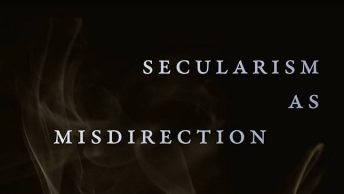In the 10th Kohli Memorial Lecture on ‘Criminal Justice System – growing responsibilities in light of contemporary challenges’, delivered on 2 April 2009, the Chief Justice of India defended the recent amendments to the Code of Criminal Procedure thus:
The legislative intent behind giving this discretionary power to the police is to reduce the high incidence of arbitrary and unnecessary arrests that take place in our criminal justice system. Some critics of this proposed change have argued that the deterrent value of penal provisions will be weakened since arrests will not be made in cases where the suspected persons use their money or muscle-power.
This criticism is unfounded because the proposed change does not take away the power to arrest in its entirety. Instead it requires arrests to be made in a reasonable and proportionate manner. The Investigating Officer (I.O.) is required to record reasons in writing for making an arrest, thereby creating a reliable basis for subsequent judicial scrutiny. In instances of exigency, such reasons can of course be recorded after the actual act of arrest. Such a requirement is in conformity with ‘due process’ norms and it will create a measure of accountability in police behaviour apart from providing material for consideration during bail proceedings. Furthermore an Investigating Officer is also to be given the power to issue a ‘notice of arrest’ to the person sought to be apprehended. To my mind, these changes proposed to the law of arrest are well-intentioned and are being unfairly criticised by some.
I have also supported these amendments in this article and previously on this blog. SR Sankaran also offers his support for the amendments in this article in the EPW.






the amendment postulates that before heading to arrest the I.O has to satisfy himself that there exists reasonable suspicion and credible information against the suspect having been committed an offence. who decides the two criteria? it is not possible to define the objectivity of something as subjewctive as reasonable and credible. moreover, the power is going to be misused in as much as it curtails the power to arrest whicvh in turn enable the police to arrest the person implicatring him to an offence punishable with more than 7 years
which is why i argue in my IE article that introducing discretion (reasonableness etc) will make the power of arrest judicially reviewable. of course these terms are vague, but the legal system cannot function without them. to the proposition:
‘Let us arrest when it is reasonable’, you cannot argue
‘Let us arrest them all’ only because reasonableness has a vaguer content. of course the discretion will be misused in certain cases, but isn’t that still better than the more draconian second proposition (especially, when the former comes with judicial review).
the amendments are not the best way to organise arrest law, but they are better than what exists.